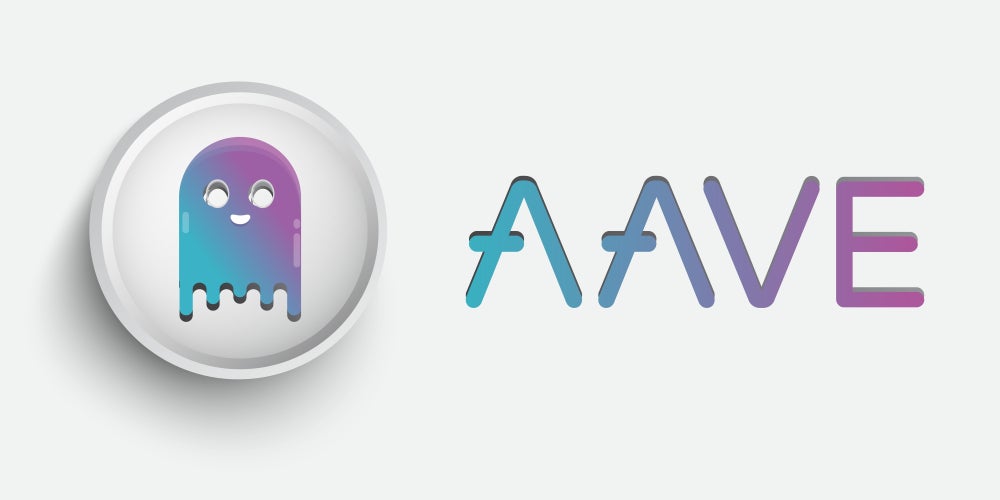- 2.1 Decentralized Lending and Borrowing Mechanisms
- 2.2 Flash Loans and Their Applications
- 2.3 Liquidity Pools and Interest Rates
- 2.4 Comparison with Traditional Banking Systems
- 2.5 Security and Auditing
The cryptocurrency world has been on an exponential growth trajectory, revolutionizing the traditional financial landscape. In this context, educating oneself on investments and strategies is crucial, and this is where resources like https://fbc-edge.org/, focusing on investment education, become invaluable. Among the myriad of cryptocurrencies and blockchain-based projects, Aave stands out as a formidable player. In this article, we will delve deep into the heart of Aave, a decentralized lending and borrowing platform, to understand its inception, unique features, security measures, governance model, impact on the DeFi space, and prospects.
The Birth of Aave
Aave, pronounced as “ah-veh,” is a Finnish word meaning “ghost.” This intriguing choice of name reflects the founders’ aspiration to create a borderless and decentralized financial ecosystem. Aave was founded in 2017 by Stani Kulechov, a visionary entrepreneur who aimed to disrupt the traditional banking system by leveraging blockchain technology.
The project’s journey began with the launch of ETHLend, a peer-to-peer lending platform. Later 2018, it evolved into Aave, incorporating more advanced features, such as flash loans and liquidity pools, while expanding its reach beyond Ethereum to other blockchain networks.
Aave’s Unique Features
Decentralized Lending and Borrowing Mechanisms
Aave enables users to lend and borrow various cryptocurrencies in a trustless, decentralized manner. Borrowers can leverage their crypto assets as collateral to secure loans, while lenders earn interest by providing liquidity to the platform. This innovative approach eliminates the need for intermediaries and allows users to access funds without going through traditional banking systems.
Flash Loans and Their Applications
One of Aave’s groundbreaking features is the concept of flash loans. These are uncollateralized loans that must be repaid within a single transaction block. Flash loans have enabled arbitrage opportunities and fostered innovation within the DeFi space. Developers and traders can utilize flash loans to execute complex strategies and exploit price inefficiencies across various platforms.
Liquidity Pools and Interest Rates
Aave operates through liquidity pools, where users deposit their assets to provide liquidity. Borrowers’ interest rates depend on these pools’ supply and demand dynamics. This system allows for competitive interest rates and ensures borrowers access to a wide range of assets.
Comparison with Traditional Banking Systems
Aave’s decentralized approach contrasts starkly with traditional banking systems, which rely on intermediaries, credit checks, and extensive paperwork. While conventional banks impose restrictions and often exclude individuals with limited access to financial services, Aave’s open platform welcomes anyone with internet access to participate in the global financial ecosystem.
Security and Auditing
Aave prioritizes security to safeguard users’ funds and maintain trust within the crypto community. The platform has undergone multiple audits by reputable firms like CertiK and OpenZeppelin. These audits aim to identify vulnerabilities and ensure that Aave’s intelligent contracts are robust and secure.
The DeFi space has witnessed security breaches and hacks, leading to substantial losses. Aave, however, has responded to such incidents swiftly, implementing security upgrades and compensating affected users. This proactive approach highlights the platform’s commitment to protecting its users’ assets.
Governance and Tokenomics
Aave’s Native Token (AAVE) and Its Utility
Aave’s native token, AAVE, plays a pivotal role in the platform’s governance and functionality. Holders of AAVE have the power to propose and vote on changes to the protocol. This decentralized governance model ensures that the Aave community shapes the platform’s future actively.
Furthermore, AAVE tokens can be staked to earn rewards and incentives, making them a valuable asset for long-term Aave supporters. This aligns the interests of the community with the success of the platform.
Decentralized Governance
Aave’s governance is a shining example of decentralization in action. Unlike traditional financial institutions with centralized decision-making processes, Aave’s community members collectively determine protocol upgrades, fee changes, and strategic directions. This democratic approach empowers users and minimizes the risk of centralized control.
Aave’s Impact on DeFi
Contribution to the DeFi Space
Aave’s innovative features have made a significant impact on the DeFi space. Its flash loans have become a fundamental building block for developers creating complex financial products and services. The platform’s liquidity pools provide a reliable source of decentralized liquidity for the broader DeFi ecosystem.
Case Studies and Success Stories
Several real-world applications have emerged from Aave’s DeFi infrastructure. These include decentralized exchanges, yield aggregators, and lending protocols, all of which have gained traction in crypto. Aave’s versatility has empowered developers to create various financial tools, ultimately benefitting end-users.
Challenges and Criticisms
While Aave has enjoyed considerable success, it has not been without its challenges. High gas fees on the Ethereum network have sometimes made using Aave cost-prohibitive for smaller users. Additionally, the DeFi space has faced scrutiny from regulators concerned about potential risks and lack of oversight.
Future Prospects and Challenges
Roadmap and Development Plans
Aave has an ambitious roadmap includes scalability solutions, cross-chain compatibility, and further decentralization. The platform’s commitment to continuous improvement and innovation positions it as a critical player in the evolving crypto landscape.
Regulatory Concerns
As DeFi continues to gain prominence, regulatory authorities worldwide are closely monitoring the space. Like other DeFi projects, Aave must navigate regulatory challenges to ensure compliance while preserving its decentralized nature. Striking this balance will be crucial for its future success.
Conclusion
In conclusion, Aave is a remarkable example of how blockchain technology reshapes finance. With its decentralized lending and borrowing mechanisms, flash loans, and robust governance model, Aave has played a pivotal role in driving the DeFi revolution. As the crypto landscape evolves, Aave’s commitment to innovation and security positions it as a formidable force in decentralized finance. Exploring Aave’s power is informative and an opportunity to understand the transformative potential of cryptocurrency in the financial world.
